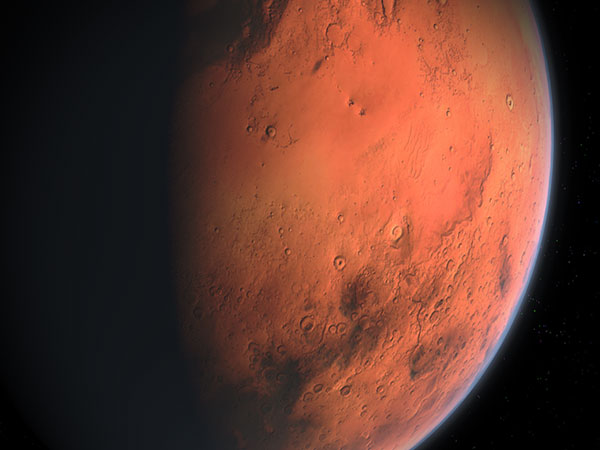New evidence for possible existence of liquid water beneath Mars’ south polar ice cap

- Country:
- United Kingdom
In 2018, European Space Agency's Mars Express detected liquid water hidden in the south polar region of Mars. Signals from the spacecraft's radar instrument, MARSIS (Mars Advanced Radar for Subsurface and Ionosphere Sounding), reflected off the planet's south pole appeared to reveal a liquid subsurface lake.
Researchers, led by the University of Cambridge, have now found new evidence for the possible existence of liquid water beneath the planet's south polar ice cap. Their results agree with earlier ice-penetrating radar measurements that were originally interpreted to show a potential area of liquid water beneath the ice.
"The combination of the new topographic evidence, our computer model results, and the radar data make it much more likely that at least one area of subglacial liquid water exists on Mars today, and that Mars must still be geothermally active in order to keep the water beneath the ice cap liquid," said the lead researcher, Professor Neil Arnold from Cambridge's Scott Polar Research Institute.
The team used a range of techniques to examine data from NASA's Mars Global Surveyor satellite of the surface topography of the part of the south polar ice cap where the radar signal was identified. They ran computer model simulations of ice flow, adapted to specific conditions on Mars.
"The similarity between the model-produced topographic undulation and the actual spacecraft observations, together with the earlier ice-penetrating radar evidence suggest that there is an accumulation of liquid water beneath Mars' south polar ice cap, and that magmatic activity occurred relatively recently in the subsurface of Mars to enable the enhanced geothermal heating needed to keep the water in a liquid state," the researchers said in a statement.
The team also included researchers from the University of Sheffield, the University of Nantes, University College, Dublin, and the Open University.
The study is published in the journal Nature Astronomy.










